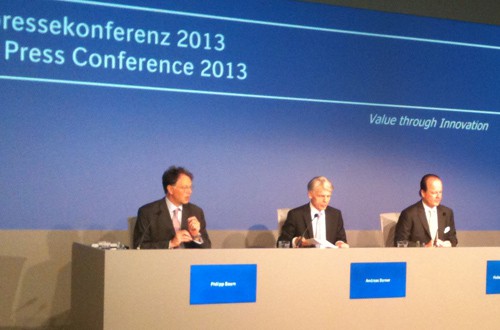
Germany’s tough approach to assessing the cost-effectiveness of medicines is threatening the future of research in the country, according to Boehringer Ingelheim.
Speaking at the company’s annual conference in its home country of Germany, head of finance Hubertus von Baumbach said that stricter health technology assessment (HTA) meant new drugs were less likely to reach market, making it “increasingly difficult to continue to invest in the research and development of innovative medicines”.
Von Baumbach referenced the failure of German regulator the G-BA to recommend diabetes treatment Trajenta in 2012, which the company says was unfairly compared to generic sulphonylurea to determine its cost-effectiveness.
“A healthcare policy that solely targets cost reduction leads sooner or later to rising costs to society,” he said. “The lack of therapeutics progress leads to increasing cost, because inefficient treatment methods are applied. And finally, this decision threatens highly skilled jobs at the research location in Germany.”
Boehringer’s chair of the managing board of directors Professor Andreas Barner added to von Baumbach’s comments, claiming the price suggested by the G-BA to recommend Trajenta was “economically indefensible”.
“Ultimately it would make it impossible to recover research costs and to conduct research in Germany,” he said. “We cannot conduct research in Germany and sell at Greek prices.”
According to Prof Barner, part of the problem is that some countries do not allow medicines to be registered if they are not used in the country they were developed in – a situation that directly applies to Trajenta.
Prof Barner was hopeful the situation would change, however, referencing the upcoming federal election in Germany in September 2013 as a chance to revise and assess the G-BA’s process for drug reimbursement.
Allan Hillgrove, Boehringer’s head of sales also commented that the country’s system of drug reimbursement needed to change.
“Over time patients in Germany will want innovative products,” he said. “And I think there will be some change in the system. An election could be a trigger for that change. I’m positive, but let’s wait and see what comes.”
Elsewhere, the company posted fairly positive financial results, increasing net sales by 11.5 per cent to about €14.7bn.
This was boosted by strong growth from the recently launched Pradaxa, revenues for which increased 76 per cent to hit blockbuster status at €1.11bn.
Operating income was €1.85bn for the year, down by 18 per cent as the company increased its investment in R&D.




